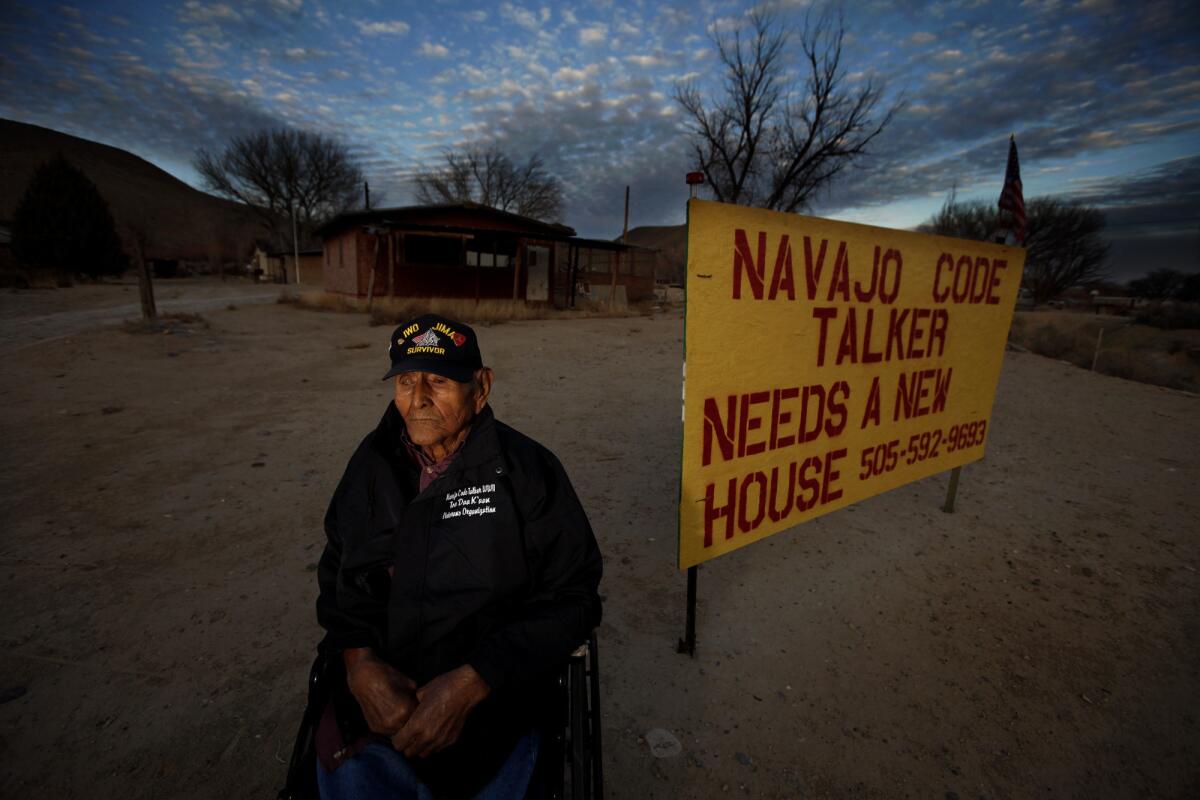Navajo Code Talkers ask for help with decrepit dwellings

FARMINGTON, N.M. — Navajo Code Talkers became legendary for using their native tongue during World War II to transmit messages the enemy could not decipher. To this day, they are celebrated at parades and honored at military events nationwide.
They’ve shaken hands with presidents, and their heroics have been portrayed in a major motion picture.
But when they return home to Navajo country, it’s often to something less than Hollywood splendor. Some Code Talkers live without electricity or running water. Others lack central heating. One Code Talker even lives in a house that has been struck by lightning, which is taboo in Navajo tradition. The lightning strike left a mark that is visible above the door.
Recently, a group of Navajo Code Talkers and their families gathered at a community center and expressed their disappointment in the difficult housing conditions many of them face.
They detailed their concerns and frustrations to a Los Angeles Times reporter.
Two code Talkers, their wives, a widow and daughter laid out their grievances. Alfred Newman Sr. and his wife, Betsy, said they feel a bit used when paraded around at events.
“People talk about Code Talkers. They say how famous they are,” Betsy Newman said.
Every person in the room told similar stories.
Anne Tso, widow of Code Talker Samuel Nakai Tso, spoke about how her husband died recently without seeing the dream of his tribe-sponsored home completed.
Across the room, Samuel F. Sandoval, a 90-year-old Code Talker, said his wife must work several jobs to make improvements to their home.
“They don’t feel like they are famous,” Newman said.
Navajo Nation officials think about Code Talkers and invoke them around tribal elections, she said, but otherwise “they forget about us.”
cindy.carcamo@latimes.com
More to Read
Sign up for Essential California
The most important California stories and recommendations in your inbox every morning.
You may occasionally receive promotional content from the Los Angeles Times.











